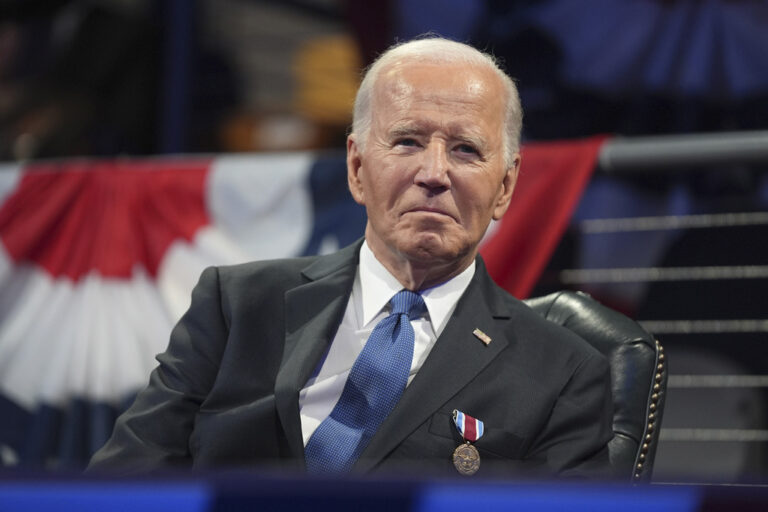 President-elect Donald Trump hadn’t been seen in public for days when he walked into New York’s 21 Club to applause from fellow diners. The unannounced evening out with family was a contrast to the behind-the scenes machinations that suggested a struggling transition as names surfaced and sank for top administration positions.
President-elect Donald Trump hadn’t been seen in public for days when he walked into New York’s 21 Club to applause from fellow diners. The unannounced evening out with family was a contrast to the behind-the scenes machinations that suggested a struggling transition as names surfaced and sank for top administration positions.
Not to worry, Trump suggested in a Tuesday night tweet: “Very organized process taking place as I decide on Cabinet and many other positions. I am the only one who knows who the finalists are!”
Before dinner at the midtown Manhattan restaurant— he broke with protocol and left his press contingent behind — Trump met with the head of his transition team, Vice President-elect Mike Pence, but another day passed without a Cabinet announcement.
Strains were showing within the process. Trump’s allies engaged in an unusual round of public speculation about his potential appointments. Former Rep. Mike Rogers, a respected Republican voice on national security issues, quit the transition effort. And an apparent clerical oversight temporarily halted the Trump team’s ability to coordinate with President Barack Obama’s White House.
Former New York Mayor Rudy Giuliani seemed to be angling for secretary of state. But Trump’s transition team was reviewing Giuliani’s paid consulting work for foreign governments, which could delay a nomination or bump Giuliani to a different position, according to a person briefed on the matter but not authorized to speak publicly about it.
Giuliani founded his own firm, Giuliani Partners, in 2001, and helped businesses on behalf of foreign governments, including Qatar, Saudi Arabia and Venezuela. He also advised TransCanada, which sought to build the controversial Keystone XL pipeline, and helped the maker of the painkiller drug OxyContin settle a dispute with the Drug Enforcement Administration.
A Trump official said John Bolton, a former U.S. ambassador to the United Nations, remained in contention for secretary of state. Bolton has years of foreign policy experience, but he has raised eyebrows with some of his hawkish stances, including a 2015 New York Times op-ed in which he advocated bombing Iran to halt the country’s nuclear program.
Businessman Carl Icahn disclosed on Twitter, based on conversations with the president-elect, that Trump was considering Steve Mnuchin, a former Goldman Sachs banker, and Wilbur Ross, a billionaire investor, to lead the Treasury and Commerce departments.
New Jersey Gov. Chris Christie had spent months running transition operations before his demotion last week. The switch to Pence, however, slowed Trump’s ability to coordinate with the White House. Not until Tuesday evening did Pence sign a memorandum of understanding facilitating interactions between his team and Obama administration officials. Christie had signed the document, but Pence’s promotion made it invalid.
A person familiar with the transition efforts said different factions in Trump’s team “are fighting for power.”
Indeed, Trump effectively created two power centers in his White House even before taking office. He named Republican National Committee Chairman Reince Priebus as his chief of staff and flame-throwing media mogul Steve Bannon as his chief strategist, but called them “equal partners.” Trump’s son-in-law Jared Kushner is also deeply involved in the transition, creating another layer of uncertainty about who is making decisions.
“That organization right now is not designed to work,” according to the person close to the efforts, who like others involved in the transition, insisted on anonymity because they were not authorized to publicly discuss the internal process.
Former GOP national security official Eliot Cohen blasted Trump’s team on Twitter, calling them “angry, arrogant.” Cohen opposed Trump during the campaign, but in recent days, he said those who feel duty-bound to work in a Trump administration should do so. But he said Tuesday that after an exchange with Trump’s team, he had “changed my recommendation.”
With Trump’s team divided, emboldened Republicans on Capitol Hill moved forward with a united front. House Speaker Paul Ryan, a lukewarm Trump supporter during the campaign, unanimously won his GOP colleagues’ votes for another term at the helm of the House. He told fellow Republicans he had Trump’s support, and heralded “the dawn of a new, unified Republican government.”
(AP)










